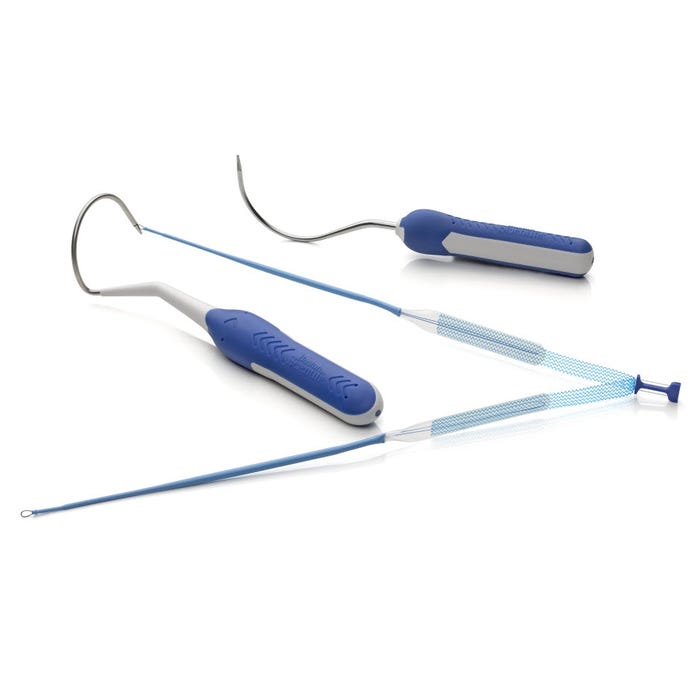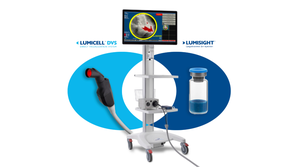January 15, 2016
Boston Scientific has been sued under the Racketeering and Corrupt Organizations Act (RICO) for allegedly orchestrating a conspiracy to sell misbranded transvaginal mesh made from counterfeit plastic smuggled from China.
Qmed News
|
|
A federal recent lawsuit filed in West Virginia observes that, despite the controversy surrounding transvaginal mesh, Boston Scientific still collects $120 million in revenue on average from the sale of the product, which is implanted in roughly 55,000 women each year. The polymer used to make all of Boston Scientific's mesh, the polypropylene Marlex HGX-030-1, had been specified in the regulatory documents filed for Boston Scientific's mesh products. Therefore, no other polymers could be used in its current mesh products.
But in 2011, the company began to encounter difficulties obtaining the material from its supplier, Chevron and Phillips/Sumika in LaPorte, TX. After unsuccessfully attempting to convince Phillips to produce the material, Boston Scientific allegedly began smuggling it out of China. The company is said to have worked with "known counterfeiter" EMAI Plastic Raw Materials to ultimately smuggled some 34,000 pounds of counterfeit Marlex material, without verifying or fully testing all the contents. "Marlex" is not a generic name but rather a trademarked specific brand name.
Counterfeit Marlex resin pellets were reportedly sent to Luxilon in Belgium to produce counterfeit Marlex fibers, and then to Proxy in Galway, Ireland to fashion into shaped mesh, and finally to Medventure in Indiana to prepare for final knitting and manufacture.
"The company took extraordinary measures to avoid being caught by U.S. and Chinese authorities, at times acting like a drug dealer to hide multiple overseas shipments," according to the complaint.
An email from the attorney Steve Mostyn of Mostyn Law alleges that Boston Mesh's counterfeit mesh had levels of selenium so high that it exceeded by 10 times that amount that is allowed in Europe for general plastics. Selenium is not present in Marlex resin. Mostyn claims that the element will react with hydrogen peroxide to cause inflammation, degrading both the plastic itself and the surrounding tissue.
A Boston Sci spokesman responded: "We don't believe the case has merit and intend to vigorously defend these claims."
The smuggling campaign required deceiving Chinese customs, U.S. customs, the FDA, and the patients who ultimately receive the adulterated products, according to the complaint.
The companies hid their actions by claiming to have obtained legitimate Marlex resins in storage from Chevron Phillips Chemical, but lacked the documentation to demonstrate the origin of the material.
To elude detection by custom agents, the company divided the resin into several hundred bags shipped in three shipments.
The scheme is documented in thousands of Boston Scientific's own documents, according to the complaint.
However, the majority of the documents were made confidential and redacted to hide the smuggling campaign from the public.
Boston Scientific has recently been in the news for recalling nearly 1000 of its guidewires after a patient death.The lawsuit notes that the company has recalled 793 products since 2003.
It brings a list of charges against Boston Scientific, including fraud, intentional misrepresentation, negligent misrepresentation, violations of West' Virginia's Deceptive Trade Practices Act, and unjust enrichment.
The plaintiff, Teresa Stevens, is also seeking a temporary restraining order and preliminary injunction against Boston Scientific to prevent "immediate and irreparable injury, loss, or damage."
She had been treated with the company's Obtryx-Halourethral sling system.
The class-action lawsuit, filed by Houston firm Mostyn Law, names not only Boston Scientific but also EMAI Plastic Raw Materials Co., Proxy Biomedical, and Luxilon Industries for their role in the scheme.
Vaginal mesh has become an increasingly controversial product in recent years. Many thousands of lawsuits have been filed related to the devices and FDA has recently ordered reclassifying pelvic mesh as a Class III product requiring PMA approval.
Like what you're reading? Subscribe to our daily e-newsletter.
About the Author(s)
You May Also Like



